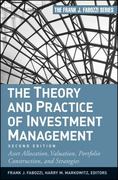Question
1. Leverage will increase equity returns when a property is performing well; however, the use of leverage in a poorly performing property will reduce equity
1. Leverage will increase equity returns when a property is performing well; however, the use of leverage in a poorly performing property will reduce equity returns even further than otherwise and may lead to default.
a. This statement is false because using any leverage is a bad investment strategy.
b. This statement is true because the use of leverage can most definitely increase equity returns.
c. This statement is false because the use of leverage causes the investor to have outstanding debt and may cause her to hoard her cash flow in rainy day funds.
d. None of the above are true or false.
2. Page 514 in the textbook quotes Mr. Nathan S. Collier, founder of the Colliers Companies, from his blog. Which statement(s) does he make concerning pro formas and/or the NPV and IRR.
a. Im a big back of the envelope kind of guy. If the deal is so close that it does not pencil out on a napkin at the table, Im pretty sure I dont want to go for it.
b. It is amazing how many people in real estate and finance have never created a pro forma from scratch and couldnt to save their lives.
c. NPV and IRR are not major ways in which investment decisions are evaluated.
d. All the above.
e. He said a. and b. only.
3. Real estate investors commonly use mortgage debt to help finance capital investment. Using debt has an effect on the cash flows. What term refers to cash flows that represent the propertys income after subtracting any payments due to the lender?
a. Levered cash flows
b. Unlevered cash flows
c. Present valued cash flows
d. Future valued cash flows
4. While increased leverage may allow the investor to purchase higher expected returns (IRR), the price of doing so is an increase in which of the following risks?
a. Liquidity Risk
b. Default Risk
c. Interest Rate Risk
d. Reputation Risk
5. The sales price in a DCF (discounted cash flow) analysis is estimated at the end of the expected holding period. The most common method for determining the terminal value of the property is the:
a. yield capitalization method
b. direct capitalization method
c. repeat sales-approach
d. cost approach
Step by Step Solution
There are 3 Steps involved in it
Step: 1

Get Instant Access to Expert-Tailored Solutions
See step-by-step solutions with expert insights and AI powered tools for academic success
Step: 2

Step: 3

Ace Your Homework with AI
Get the answers you need in no time with our AI-driven, step-by-step assistance
Get Started


